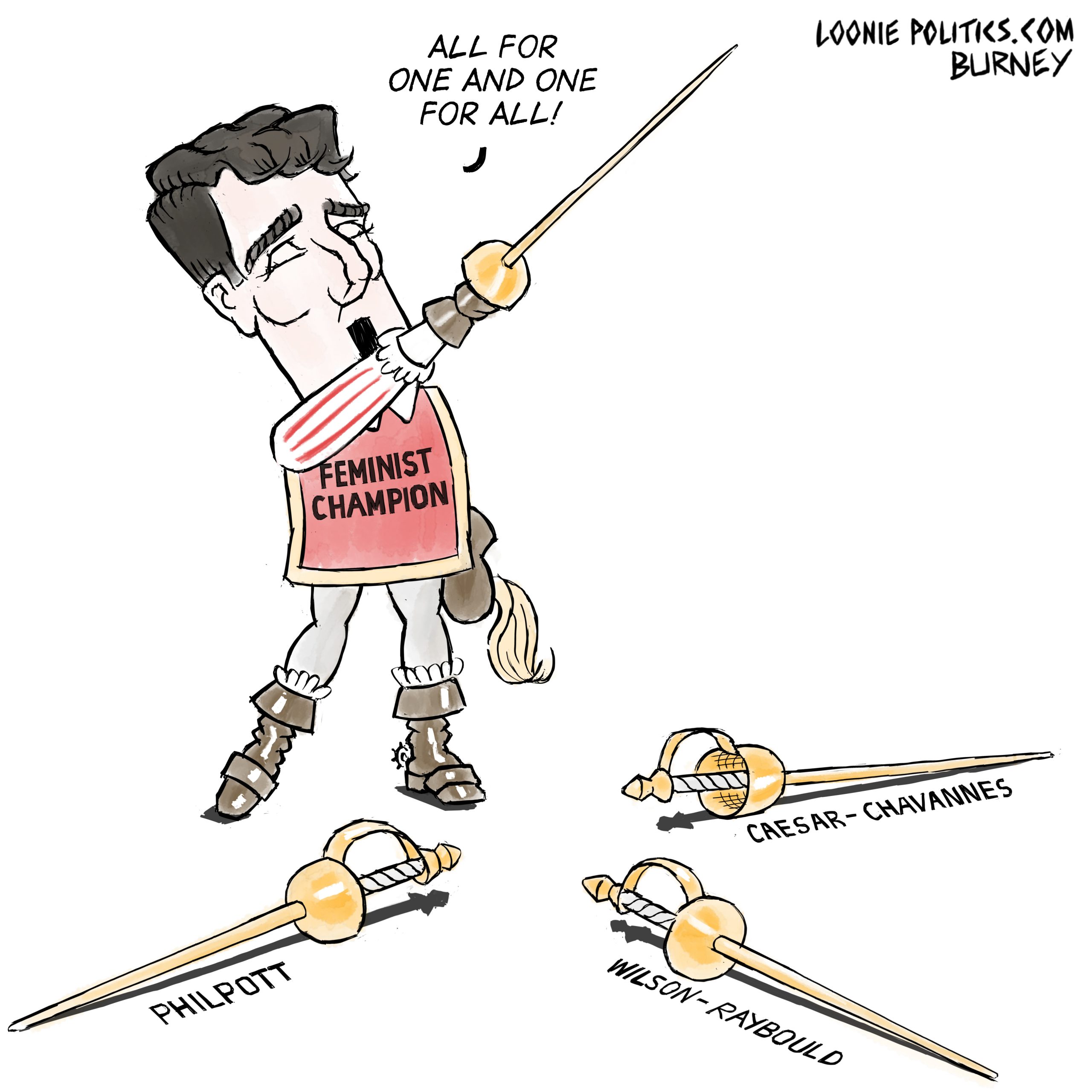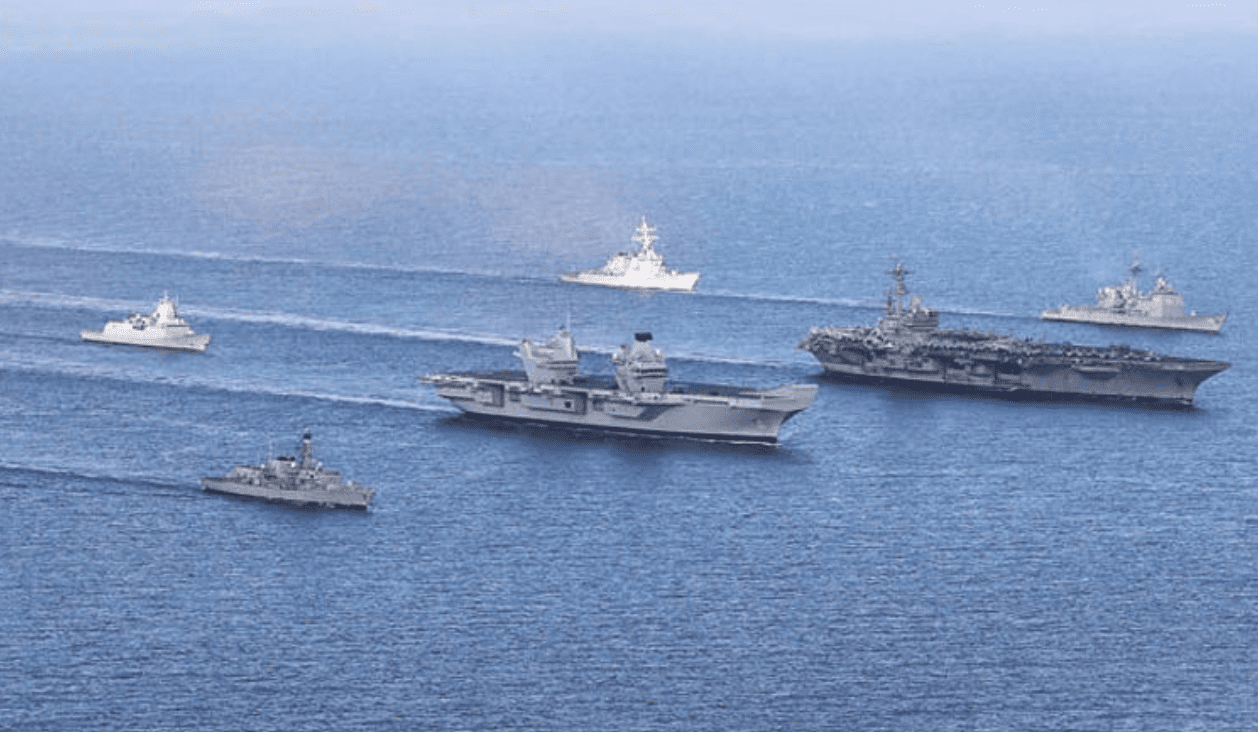One of the weirdest things about the seemingly never-ending SNC-Lavalin scandal saga (and there are lots of weird things about it) is how it has suddenly evolved into something resembling an episode from the Game Of Thrones.
What I mean is, in short order, this scandal has gone from being a relatively simple tale of government officials allegedly twisting ethics to a melodramatic, complex political conspiracy thriller, in which two shrewdly ambitious women are seeking to topple their leader, Justin Trudeau, from his prime ministerial perch.
Or at least that's how some people are trying to spin the SNC-Lavalin scandal.
The CBC's Neil Macdonald, for instance, recently penned a column with the dramatic, eye-catching headline: "At this point, the Philpott-Wilson-Raybould end game is obvious — destroy Trudeau."
In this piece Macdonald ominously notes that Jane Philpott and Jody Wilson-Raybould, who, of course, are both at the centre of this controversy, are engaging in what he called a "power play."
Writes Macdonald: "Might it simply be that Philpott and Wilson-Raybould are being coy because they want to inflict maximum damage on Trudeau from within his own caucus, which they know is the most effective place to do it? Might they intend to push for a leadership review after this fall's election, or, even better, before it?"
In other words he thinks Philpott and Wilson-Raybould are engineering an anti-Trudeau coup from within the Liberal Party.
To me, Macdonald's theory, while fun to ponder, is really farfetched.
Now before I go on, I get why people like MacDonald and others, might embrace the "coup d'etat" explanation for what's going on with the SNC-Lavalin scandal.
For one thing, the Liberal party has had a history of nasty internecine warfare; we all remember the spite-filled feud that erupted so publicly between Jean Chretien and Paul Martin.
Plus, and this is just human nature, we don't like to accept the idea that dramatic events occur randomly or haphazardly; instead we always prefer to believe that some guiding intelligence is knocking down dominoes in a pre-planned, pre-meditated manner.
It helps us makes sense of the world.
This is why conspiracy theories flourish in our society; people are willing to believe all sorts of hare-brained ideas simply because they seem to explain life's mysteries, i.e. reptilian aliens are running the world from a secret base on the moon or dinosaurs helped to build the pyramids or Russian agents rigged the last US presidential election or Stephen Harper was the spawn of Satan.
And lastly, I must concede, the way Philpott and Wilson-Raybould have so exquisitely timed their devastatingly effective salvos against the Prime Minister's Office, does lead some credence to the notion that they might have ulterior motives.
Yet, despite all that I still don't believe Philpott and Wilson-Raybould should seriously be considered as the Cassius and Brutus to Trudeau's Julius Caesar.
Why?
Well a couple of reasons.
Firstly, those who kill the king, can't replace the king.
My point is, if Philpott and Wilson-Raybould were intent on killing Trudeau's leadership, they would have to realize that neither one of them would ever replace him as leader.
Indeed, by the time you read this, both women might be kicked out of the Liberal caucus.
Secondly, and more importantly, the main question I have is this: why would Philpott or Wilson-Raybould or any other Liberal for that matter want to stage a coup d'etat at this particular time?
After all, before the SNC-Lavalin scandal erupted, Trudeau was doing fairly well in the polls and seemed destined to win yet another majority victory in October.
So why, just months before an election, would it be in the interest of any Liberal to set off a political Gotterdammerung.
Or to put that in a less Wagnerian way, why would any Liberal want to kill the Sunny Ways golden goose?
It just doesn't make sense.
And yes I know there are probably many Liberals out there who might resent Trudeau's leadership or who might disagree with his policies.
But keep in mind, the Liberal Party is not an ideological organization; it's party that craves one thing and one thing only: power.
And that's the sweet prize Trudeau is dangling before his followers.
So yeah, I don't buy at all the Philpott, Wilson-Raybould coup d'état conspiracy theory.
To me, the whole idea is just a fabrication dreamed up by Trudeau loyalists who are trying to smear the two women as traitors.
At any rate, I think it's time the media dropped that crazy conspiracy angle and instead concentrated on telling the real story behind the SNC-Lavalin scandal.
And I think we all know that real story: the whole thing is being secretly orchestrated by extraterrestrial Lizard men living on the moon.
Photo Credit: Jeff Burney, Loonie Politics








